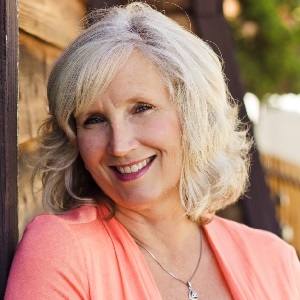The Author Discusses the Important Presence of Faith in Her Novels
 Christian themes are found throughout Susan Meissner’s novels, particularly through her characters’ resilience and ability to overcome tragedy and hardship in the worst of times. Through her writing she often addresses themes such as dealing with death, life after death, how to recover from loss, and that all choices have consequences.
Christian themes are found throughout Susan Meissner’s novels, particularly through her characters’ resilience and ability to overcome tragedy and hardship in the worst of times. Through her writing she often addresses themes such as dealing with death, life after death, how to recover from loss, and that all choices have consequences.
Her latest novel is The Last Year of the War (Berkley), a sweeping tale of love and loss during World War II. Told from the perspective of a young German-American girl, The Last Year of the War is the story about American immigrants fighting persecution in the final years of the war.
Susan talks about the faith themes in her work:
What themes arise out of this story and why did you decide to incorporate them?
Despite this being a work of historical fiction, this novel touches on topics that are rather relevant today. The Last Year of the War first and foremost is a book that looks at how quick we are to judge people when we’re afraid of them. Fear is never a very good place to begin when making decisions about how to treat people, and it is even worse when it becomes a place at which to remain when making those decisions.
We see this concept at work with the WWII internment camps where tens of thousands of Japanese-, German-, and Italian-Americans were forcibly detained, most simply because of their heritage. Granted, the United States had difficult decisions to make when America entered WWII, but a mindset of highly prejudiced thinking motivated by fear does not usually result in wise decisions. Fear alerts us to danger, but rarely does it help us deal with it.
Too often it leads to actions we later regret. In 1988, for example, the US not only formally apologized to the Japanese-Americans interned in the war, President Reagan signed legislation to provide $1.25 billion in reparations. Fear had led to a decision that was forty-some years later regretted. This novel speaks to this idea of national loyalty. What are we loyal to when we say we are devoted to the nation of our birth? Are we devoted to its land, or to its people, or to its ideals, or to its leadership?
For those of us who call ourselves believers, these are important questions to ponder.
Why would you say these are important considerations for those in the faith community?
 I think we believers largely agree that all people have intrinsic worth because every human is created in the image of God. And I think we’d agree loyalty to God surpasses loyalty to any nation in terms of priority.
I think we believers largely agree that all people have intrinsic worth because every human is created in the image of God. And I think we’d agree loyalty to God surpasses loyalty to any nation in terms of priority.
But the bigger reason I think these are important questions is that whenever there is a conversation about immigrants or would-be immigrants those in the faith community need to look at what has been written down for us in scripture regarding how God thinks of those same people. It’s all over the Old Testament how God expected believers to treat widows, orphans, and aliens; the most vulnerable people in the world in ancient times.
These three groups of people were in such a precarious situation and yet they deserved compassion and attention, which if nothing else is a commentary on us – that we too are in need and yet deserving of love and care, and that God has lavished both on us in so many ways. Loving the stranger is loving Christ. Withholding love from the stranger is withholding love from Christ. How to best love the stranger, the alien, the immigrant, is not always easy to figure out, especially in our day and age, but we simply must figure out how to do it.
Every time we’re faced with a tough situation we need to ask, “What would God have me do?” rather than “What would fear have me do?”
You open the novel with an elderly Elise revealing to the reader that she’s just been diagnosed with Alzheimer’s, and that she’s personified this unwanted thief and given it a name, Agnes. What was your thinking behind that?
I’ve often wondered where the personhood of an of Alzheimer’s sufferer goes during the progression of the disease, especially at that point when the person we’ve always known and loved has all but disappeared except for his or her physical body. I am convinced you take your identity to heaven with you when you die; that is, the part of you that is your very you-ness. And I am convinced your you-ness is something no disease can take away, even when it appears that it’s gone.
Writing Elise‘s character this way gave me a chance to imagine that Alzheimer’s is in fact like a thief who takes things from you. It looks like it’s taking you, but it’s not. Your you-ness still belongs to you, but during the course of the disease you are overshadowed by this unwanted guest in your body; this guest who showed up at the diagnosis and started taking your memories and displaying a different personality as you diminished visually. You are still there behind the guest.
And at the end of your life, this thieving guest stays behind in the shell of your body; and you graduate to heaven with your you-ness restored to you. I didn’t come across this way of looking at Alzheimer’s in any research; I just knew there had to be a way to imagine how we arrive in heaven whole, no matter what disease ended our mortal lives, or how it did it.
What do you hope readers will come away with after reading The Last Year of the War?
I hesitate to pinpoint a desired goal for my readers for this one. I don’t want to give the impression that because this story is so relevant to today that it’s message-driven, because it’s not.
I don’t have a message to relate. I don’t have an agenda. I believe this story will give to its readers whatever they are willing to take from it.
Much of what happened to fictional Elise and her family actually happened to real German-American families. It happened here in America, and it happened in Germany the last year of the war.
Whenever we are exposed to events of the past, we have the opportunity to consider what those events mean to us. I can tell you what I came away with in the writing of this book, and that is that I know I still struggle like everyone else to always choose love over prejudice.
I love this quote by Mother Teresa. I’ve loved it for a long time. “If you judge people, you have no time to love them.”
I acknowledge that some people are called upon to be judges, and I am thankful for them, but most of us are called upon to simply live out the two great commandments: Love God with everything we are and everything we’ve got, and love everyone else like we love ourselves. See? As Mother Teresa would say, that should keep us plenty busy.
Visit Susan Meissner’s author page:
https://www.familyfiction.com/authors/susan-meissner/
The Last Year of the War
Berkley
Susan Meissner


